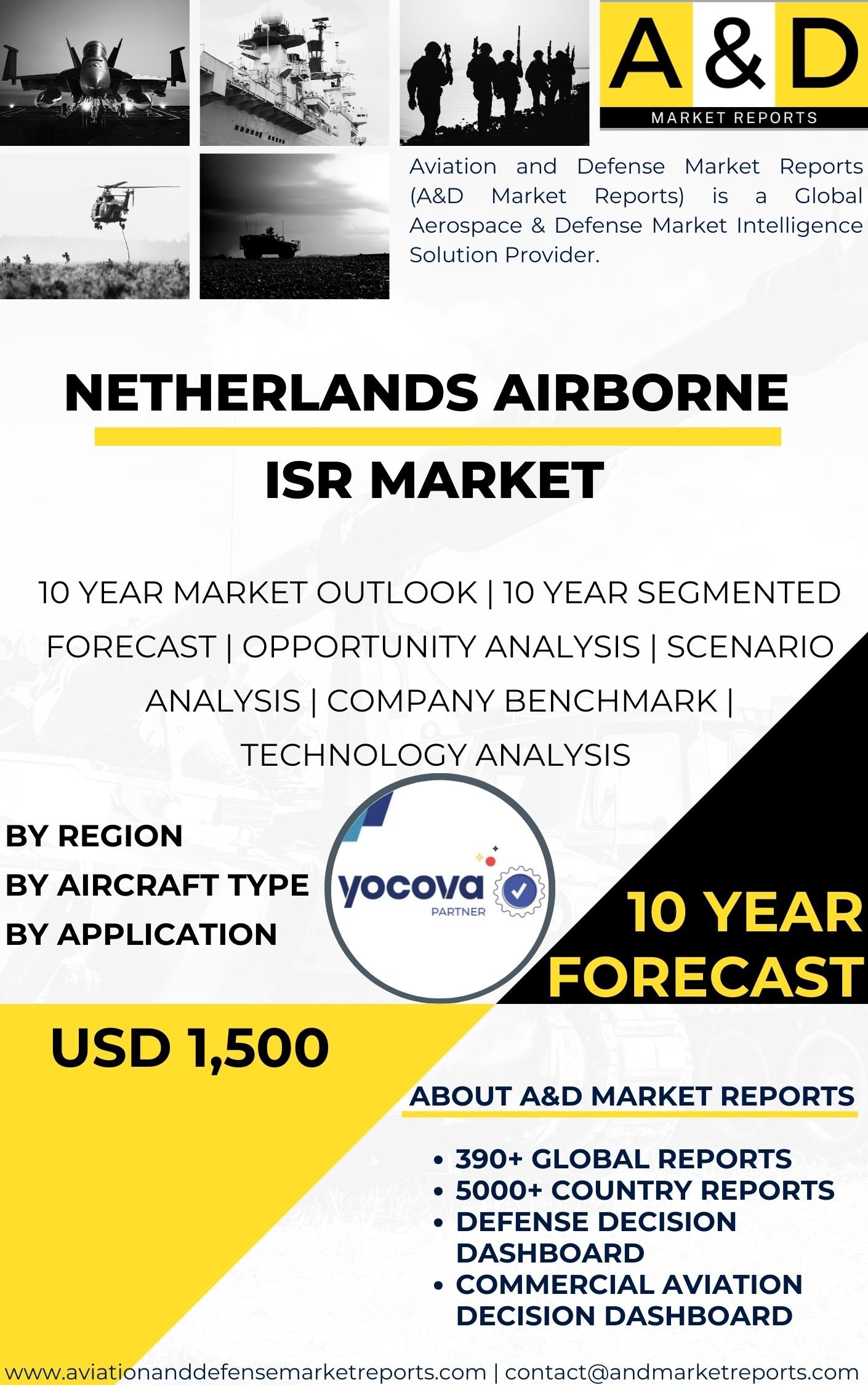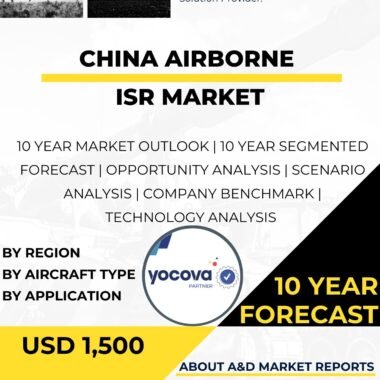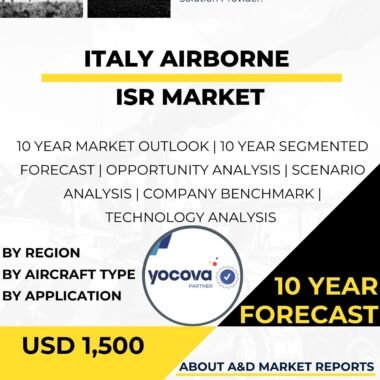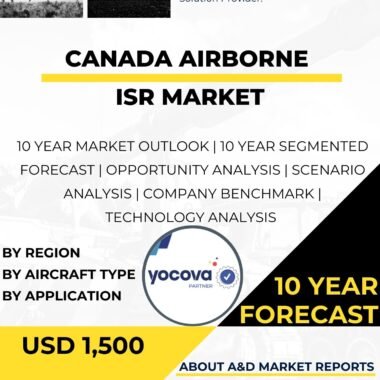Description
Netherlands Airborne ISR Market
Netherlands airborne Intelligence, Surveillance, and Reconnaissance (ISR) market has been a significant and evolving segment within the country’s defense industry. Airborne ISR refers to the use of aircraft equipped with sophisticated sensors, cameras, and other intelligence-gathering equipment to collect real-time information on enemy activities, monitor potential threats, and provide critical intelligence to military commanders. The Netherlands recognizes the strategic importance of airborne ISR capabilities in enhancing its defense readiness, situational awareness, and decision-making processes. The Netherlands airborne ISR market is influenced by several factors, including the country’s commitment to modernizing its armed forces, its participation in international security missions, and its recognition of the significance of investing in cutting-edge ISR technologies. As a member of NATO and a key player in the European defense landscape, the Netherlands understands the importance of adopting advanced airborne ISR capabilities to support its national defense and contribute to regional and global security efforts.
The market encompasses both domestic development and procurement of airborne ISR systems within the Netherlands, as well as collaboration with international partners and defense contractors. The Netherlands has reputable defense companies and research institutions that are actively involved in the development and implementation of airborne ISR technology for its military aircraft. Additionally, the country actively participates in international defense collaborations to share knowledge, expertise, and best practices in airborne ISR.
The Netherlands airborne ISR market is characterized by a focus on innovation and technological advancements. Companies and research institutions in the Netherlands continuously strive to develop cutting-edge airborne ISR solutions that can effectively address the evolving intelligence requirements of the country’s defense forces. The integration of advanced sensors, data processing, and communication systems is a key area of research and development to enhance the performance and effectiveness of airborne ISR systems.
One of the challenges faced by the Netherlands airborne ISR market is the need to address the diverse intelligence needs of its defense forces. Airborne ISR systems must be adaptable and capable of providing real-time intelligence in various operational scenarios, including reconnaissance, surveillance, target acquisition, and battlespace awareness. The Netherlands is actively investing in research and development to ensure that its airborne ISR systems can provide timely and accurate intelligence to support a wide range of military operations.
The export potential of the Netherlands’ expertise in airborne ISR technology is another important aspect of the market. The country’s reputation for technological prowess and commitment to innovation makes it an attractive partner for other countries seeking to enhance their ISR capabilities. Exporting airborne ISR technology and systems provides economic benefits for the Netherlands’ defense industry and strengthens international partnerships.
The Netherlands airborne ISR market also addresses concerns related to data security and privacy. Airborne ISR systems collect vast amounts of sensitive data, and ensuring the secure transmission and storage of this data is essential to protect national security interests and comply with international regulations.
In recent years, there has been a growing emphasis on the integration of airborne ISR systems with other defense technologies, such as unmanned aerial vehicles (UAVs), satellite communication networks, and artificial intelligence. The Netherlands is investing in research and development to explore how these technologies can enhance the capabilities and efficiency of airborne ISR operations.
Moreover, the market is witnessing increased attention to the use of advanced data analytics and machine learning in airborne ISR. The Netherlands is actively exploring how advanced algorithms can improve the processing and analysis of ISR data, providing faster and more accurate intelligence insights to military commanders.
In conclusion, the Netherlands airborne ISR market is a significant and evolving segment within the country’s defense industry. Advanced airborne ISR capabilities play a vital role in enhancing the Netherlands’ defense readiness and decision-making processes. The market is driven by the country’s commitment to technological advancement, advancements in airborne ISR technology, and the recognition of the strategic importance of ISR capabilities in enhancing its defense capabilities. As the Netherlands continues to invest in research, development, and international collaborations, the airborne ISR market is expected to play an increasingly pivotal role in shaping the country’s defense capabilities and supporting its military operations both at home and in international missions.




